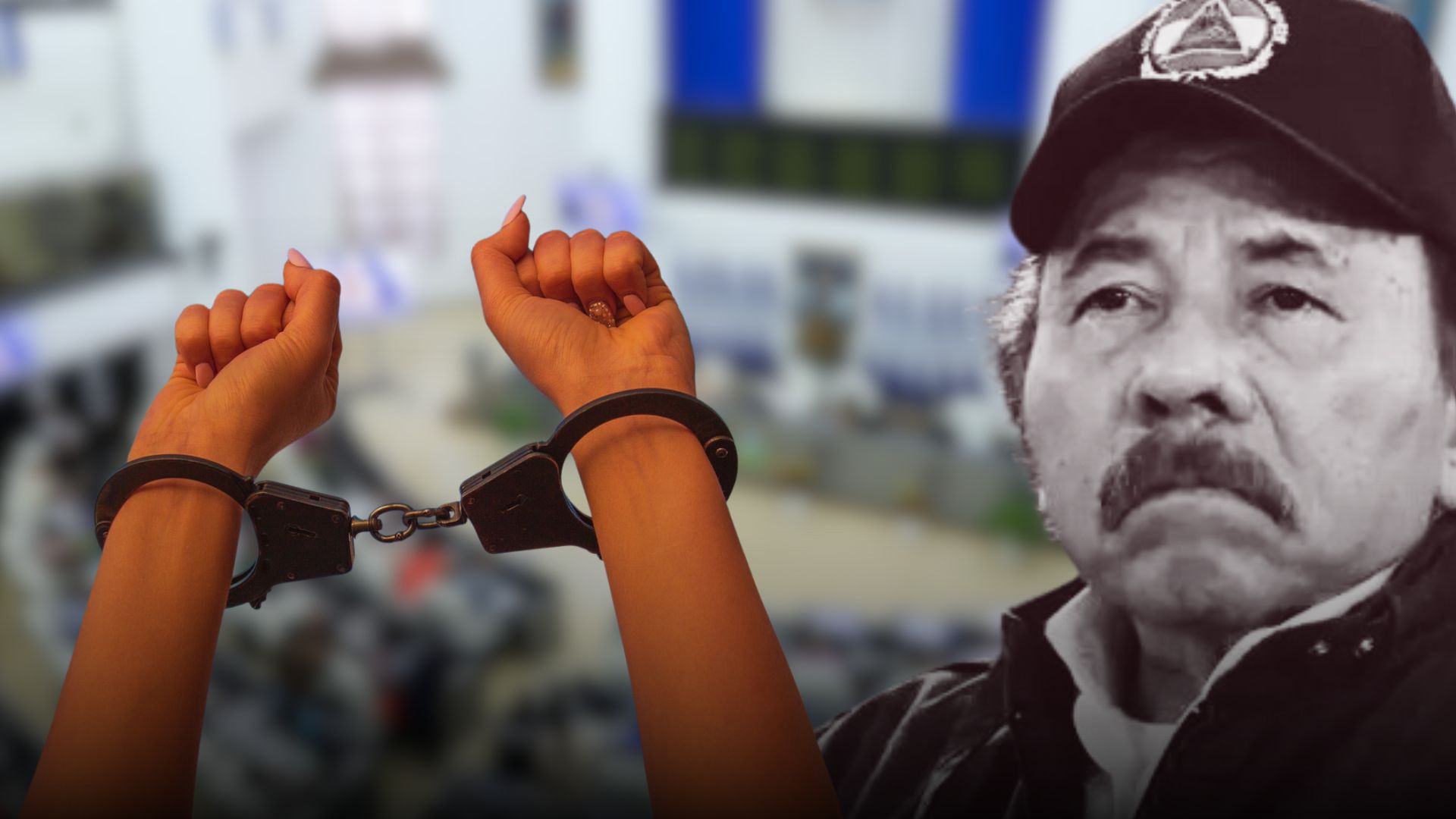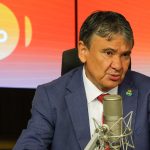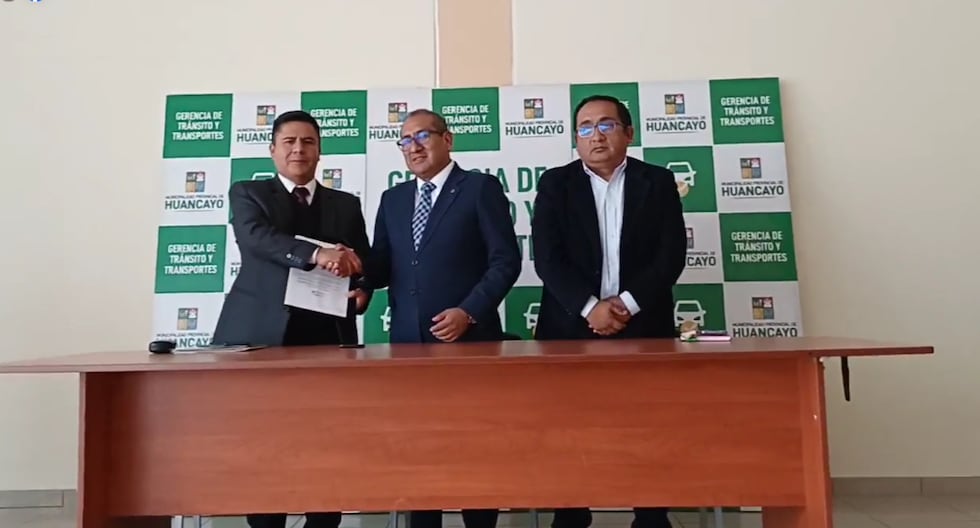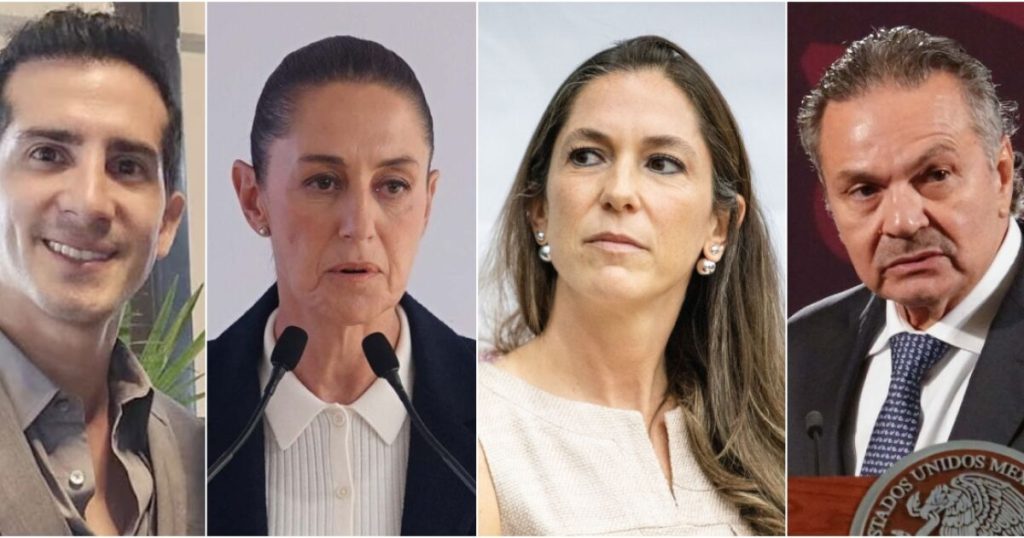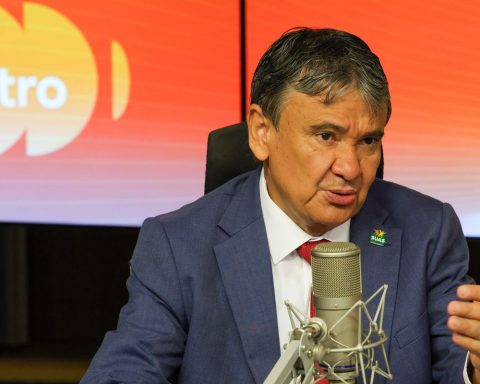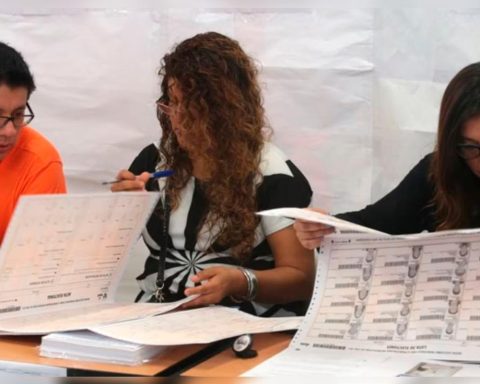Worried by the possibility of an international arrest warrant for crimes against humanity and furious against those who are pushing the accusation, Daniel Ortega and Rosario Murillo have intensified their repressive actions within the country and beyond its borders.
The regime was accused by independent jurists in an Argentine court and the opposition, despite the kidnapping, imprisonment and now exile against them for confronting them and demanding democracy and respect for human rights, have not remained silent in their international denunciation.
In recent days, the regime has sent to the National Assembly, under its control, a set of laws that, according to experts, will aggravate human rights violations and repression against Nicaraguans both inside and outside the country.
The management of remittances through reforms that supposedly seek to regulate money laundering and the revision of the Nicaraguan Penal Code to try to internationalize repressive laws, are part of the “repressive package” of mandates that the regime sent to the local congress.
Legalizes transnational repression
Ortega presented a modification to the Law Against Money Laundering, Financing of Terrorism and Financing of the Proliferation of Weapons of Mass Destruction (Law 977), as well as to the Law of the Financial Analysis Unit (Law 976), which, according to many, translates into strengthening control and supervision over remittances arriving in Nicaragua.
In addition, he issued a reform to the Penal Code that aims to prosecute national and foreign citizens who are outside of Nicaragua, imposing punishments of up to life imprisonment and the seizure of assets for those who commit crimes such as money laundering, terrorism and its financing, cybercrime and any violation against public administration.
The regime’s intention touches on 27 articles of Law 641. One of the adjustments is made in article 16, related to the “principle of universality,” which indicates that the country’s laws may be applied to Nicaraguans and foreigners who, while outside Nicaragua, have committed the crimes cited.
Related news: International arrest warrant requested against dictators Daniel Ortega and Rosario Murillo
It should be noted that the penalties for these crimes, as well as the confiscation of property, are part of the tactics that Ortega has used against the opposition who are now in exile. The repression turns into reality what was previously only a complaint made by human rights organizations such as Nicaragua Nunca Más, which months earlier warned of cross-border persecution. “They try to disguise political repression as common transnational crimes,” says human rights defender Gonzalo Carrión.
“Dangerous escalation”
Political scientist Félix Maradiaga, a former political prisoner of the regime, maintains that this reform to the Penal Code “represents a dangerous escalation in its tactics of repression.”
“(…) The reform extends its scope beyond national borders. Ortega is no longer content with imprisoning and expelling the most troublesome dissidents; he now intends to judge and confiscate the property of those in exile, increasing his ability to silence the opposition in any corner of the world,” says Maradiaga.

He adds that the laws are designed to persecute, impose penalties and confiscate any citizen, whether or not they are in Nicaragua. “The number of those affected is expected to increase dramatically, from the nearly 500 people declared stateless to thousands more. This is not simply a new law; it is a declaration of war against all those who challenge the regime, wherever they are,” he says.
The political scientist adds other concerns surrounding the repressive measure. “The category of crime is not defined, which gives the regime an almost unlimited margin of discretion,” he says. “It dangerously expands the definitions of terrorism, organized crime and other crimes, and a trial in absentia will allow opponents to be convicted without having the opportunity to defend themselves. This is a direct attack on the fundamental principles of justice and due process,” he denounces.
“Law of the Absent” falls short
Maradiaga believes that with these new reforms, “this law is even more severe than the Law of the Absent from the 1980s.”
Through decree 760 or the so-called Law of the Absent, promulgated in the 1980s, the Sandinistas affirmed that “national reconstruction was a priority task of the Revolution, which can be achieved by promoting production through the rational use of property.”
Related news: «At least I don’t drag human rights»: Gustavo Petro responds to Daniel Ortega
And considering that “some owners have irresponsibly abandoned assets necessary for the economic reactivation of the country,” they would become the property of the State. Those affected would be “all movable or immovable property, titles, securities and shares, of any nature, of those Nicaraguan owners who have left or are leaving the country and have not returned after six months,” said the article.
According to Maradiaga, this new attack by the regime “seems to be a direct response to international actions against the dictatorship, such as the creation of the United Nations Group of Experts on Nicaragua or the trial in Argentina, which challenge the regime’s interests at a global level.”
According to his analysis, the regime is “likely” to continue banishing political prisoners, “adding more names to the lists of exiles. With preliminary lists of relatives or associates of exiles declared stateless already in the hands of the regime, the witch hunt continues,” he denounces.
“Faced with this threat, the only viable option is to denounce these actions at a global level. We cannot allow this new wave of repression to go unnoticed; we must be ready to confront it with firmness and determination, fighting for the restoration of freedom in our Nicaragua. The international community has a moral and political duty not to turn a blind eye to this flagrant violation of human rights,” he demanded.
The scope of reforming anti-money laundering laws
According to the reform of Law 977, the Law Against Money Laundering, Financing of Terrorism and Financing of the Proliferation of Weapons of Mass Destruction, “supervisors are instructed to establish standards to obtain information on originators and beneficiaries of electronic transfers, remittances and virtual asset service providers.”
The document adds that financial groups must implement risk prevention programs, including branches, subsidiaries, majority-owned affiliates and representative offices abroad.
Related news: Ortega’s law seeking to prosecute exiled opponents comes into force
According to the regime, these reforms aim to “integrate changes in international standards, as well as overcome gaps that can be improved, identified during the permanent evaluation processes to which the country is subject by international regulatory bodies in the field.”
Meanwhile, the amendment to Law 976, the Financial Analysis Unit Law, will allow the Financial Analysis Unit (UAF) to profile the issuers and beneficiaries of remittances in Nicaragua, in addition to freezing money expeditiously and reporting to the Police and the Prosecutor’s Office those classified as “under investigation.”
Repressive state consolidates

The UAF will be responsible for monitoring the remittance agencies regarding the movements made by their users and will be required to report both these movements and the intermediary entities involved in the sending of money.
It is contemplated that, in the event that companies do not provide the required information, the UAF may impose administrative and criminal sanctions against the managers and directors of the remittance agencies.
On this subject, Juan Sebastián Chamorro indicated through his social networks that this new attack by the regime “has no other objective than to consolidate the repression against anyone who opposes the dictatorship, with the argument, excuse or invention of the crime of money laundering.”
Manuel Orozco, a researcher at the Inter-American Dialogue, added that the reforms are motivated more by politics than by finance or crime prevention. He warns that they are being pushed in a context of international pressure, following the request by the group of lawyers in Argentina to investigate and order the arrest of Ortega and Murillo for crimes against humanity.
Despite the confiscations, the seized properties remain unused economically, suggesting that regime loyalists could be rewarded. Moreover, according to Orozco, despite everything Ortega has done, nothing has served to avoid international scorn.
Related news: Reforms to criminal laws will allow Ortega to “identify, control and repress” more Nicaraguans
For his part, exiled political analyst and former deputy Eliseo Núñez considers it significant that the regime’s reforms invoke the principle of “universality,” which is the same legal principle invoked in the request for international justice against Ortega and Murillo before the Argentine court. “The shot could backfire,” said in good Nicaraguan.
Controlling millions
According to data from the Central Bank of Nicaragua, in the second quarter of 2024, remittances from abroad amounted to 1,336.9 million dollars, a growth of 11.9 percent compared to what was observed in the same period of 2023, which was 1,194.7 million dollars.
While, in the first quarter of 2024, according to the BCN publication, the flow of remittances received from abroad totaled 1,140.9 million dollars, which meant an interannual growth of 11.8 percent, equivalent to 120.6 million more than what was recorded in the same period of 2023, which was 1,020.3 million.
This means that, in the first six months of the year, 2,477.8 million dollars have been received in Nicaragua as a result of remittances, with the main country of origin being the United States, followed by Costa Rica. This is the huge “mass of foreign money” that the dictatorship wants to control.
